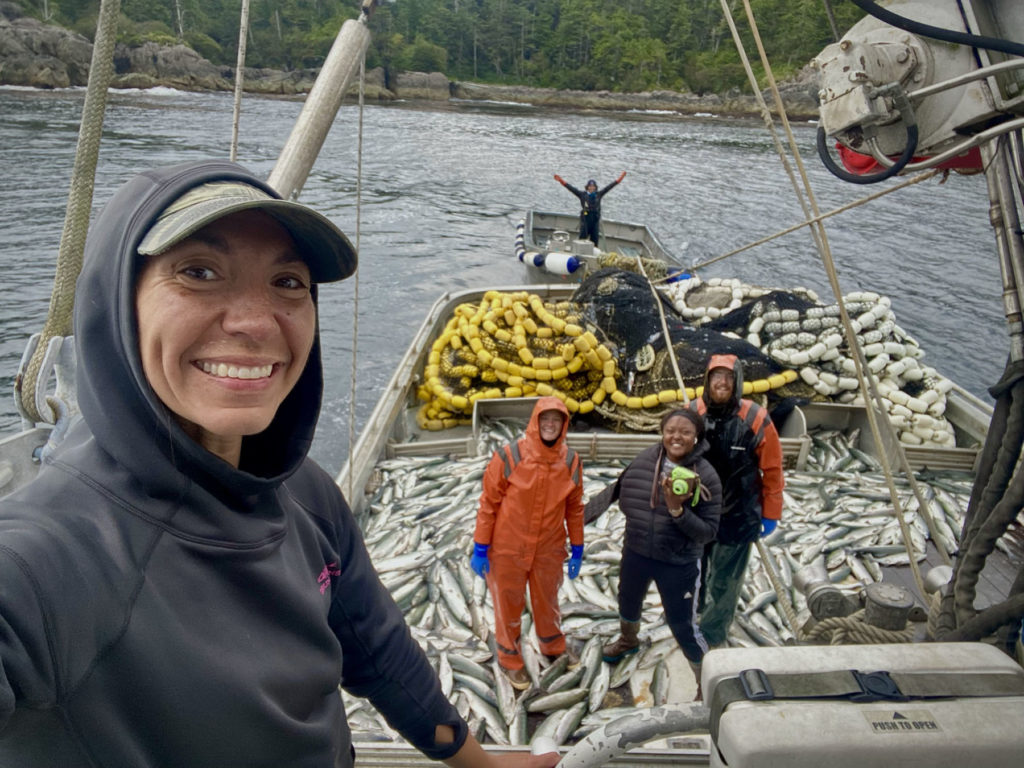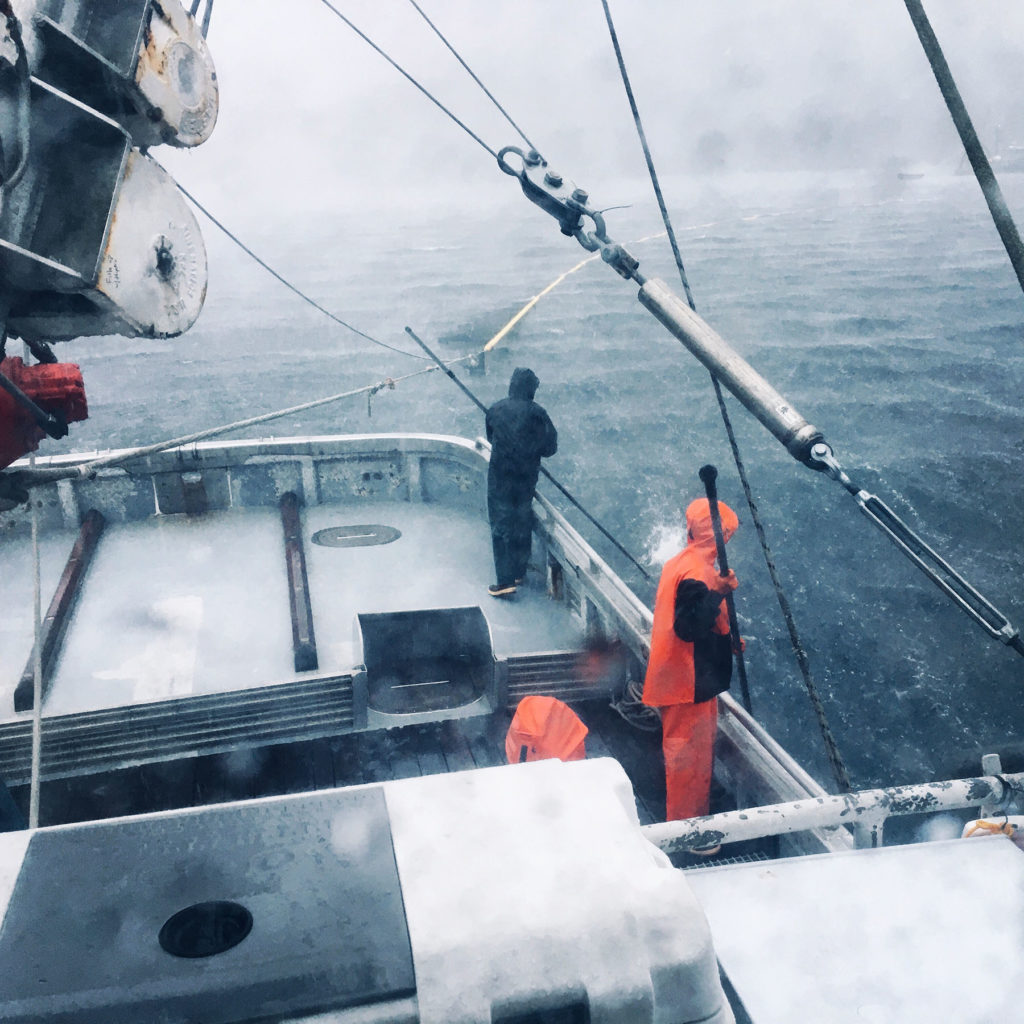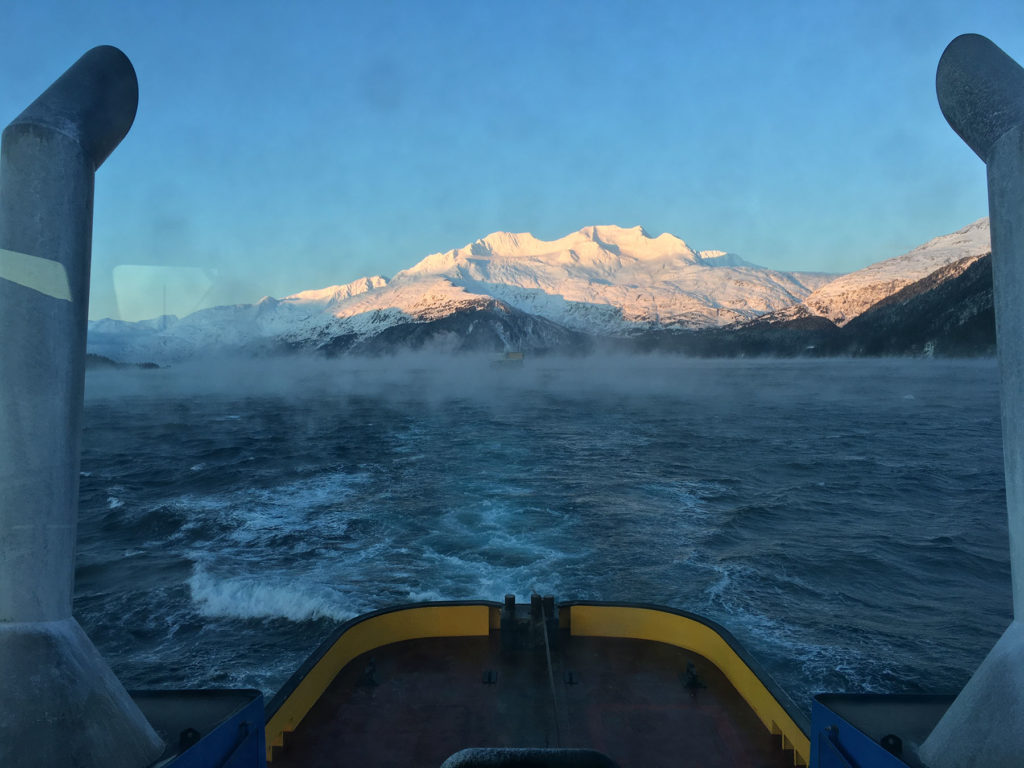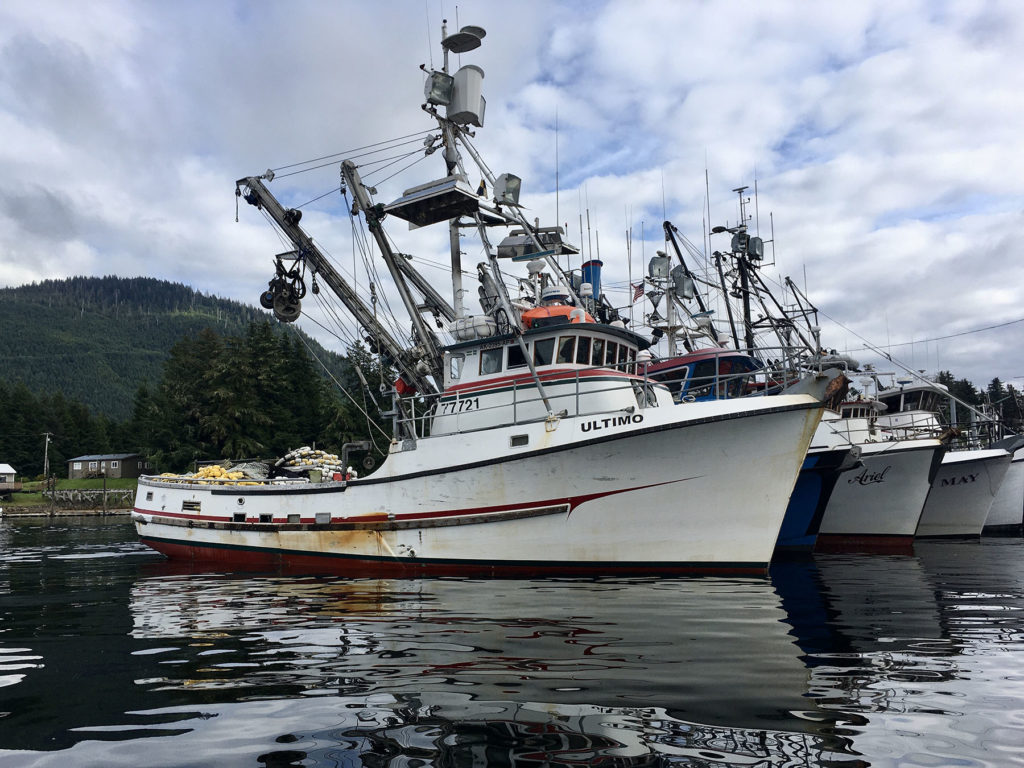
Deck hand, cook, deck boss, skiff driver, engineer, relief captain. Such reads Allison Demmert’s resume of work, dating back from the formative summers she spent working her father’s commercial boat as it navigated the stunning Alaskan wilds in search of the season’s best salmon. At an age where most children were trying their hands at fledgling lemonade stands, Demmert was fully hands-on in the family business of fishing.
“At some point, I had the realization that not all kids go to Alaska all summer to fish,” she says, with a laugh. “But for me, I was exposed to fishing from such an early age, and it’s at the very core of my family that it’s just always been a lifelong pursuit.”
Like many Northwest fishing families, the tight lines she mentions run through generations of the Demmert clan. Together her grandparents ran a troller dubbed Justna Deanna, which they raised their kids on, before purchasing and running Chirikof, the vessel Demmert’s father now owns and still uses for fishing. She’s heard many tales of her grandmother fishing alongside the men on both boats, and then cooking up meals in the cozy galley kitchens. (Today, Demmert still crafts meals in her grandma’s handed-down, cast-iron pans when she happens to be aboard Chirikof.) A roster of cousins also worked Chirikof or their own vessels, and her uncles are often spotted working away in the family’s home waters near Prince of Wales Island in the southern tip of Alaska. “During salmon season, there’s probably close to a dozen Demmerts out on the water at any given time,” she states.
Now, after first spending fourteen consecutive summers working for her dad; earning her 100-ton captain’s license in 2016; attending Seattle Maritime Academy’s engineering programs in 2017-2018; earning her designated duty engineer license in 2019; and working an informative stint as an engineer for Western Towboat Co, she has cast out her own net as the captain of the Ultimo, the 58-foot Delta fiberglass purse seine vessel she first took command of in the crazy year that was 2020.
“The opportunity to captain Ultimo came up unexpectedly,” Demmert recalls. “But I just had to make the leap to go for it…and it’s been the wildest adventure ever since.” Friends and family rallied around her to get the leased vessel in ship-shape in time for a June departure north. Then, the crew of four, plus Demmert, quarantined for two weeks aboard in Seattle (a Covid-19 regulation required by the state of Alaska that Demmert jokes proved to be a quick bonding experience for the team), before heading up the Inside Passage for her rookie season attempt.
Perhaps due in part to the ongoing pandemic, and definitely due to a lower yield, 2020 was in general a slower fishing season, but one Demmert describes as a “great practice run” as she learned to navigate the challenges from an entirely perspective, no longer just a member of the crew, but behind the helm herself. “The role requires a lot of creative problem solving, and then there is also the weight of responsibility of keeping the crew safe and working together well all season long.”
For the uninitiated, the commercial fishing schedule is a grind, to say the least. Alarms go off in the dark of night and the anchor is pulled at about 3:15 am as the fleet cruises out to the predetermined fishing grounds, scoping out their preferred spot, and then throwing out their carefully prepared nets to begin hopefully catching the haul. On any given day, Demmert estimates her team casts and pulls the net back in anywhere between 12 and 18 times, working until the daylight wanes into the short, dusky Alaskan night. Fish caught up in net are wrested in and off-loaded onto waiting tenders equipped with vacuum pumps that pull the fish from the hold and drop them onto large sorting tables aboard the tenders. There, the fish are hand sorted by type, Coho in one pile, chum in another, and so on. Then, the tenders head off to deliver the salmon to the canneries onshore. A large catch can take a couple of hours for the crew to sort, then it’s back aboard the purse seiner to get the net prepped for the next go-round. Rare off-hours are then spent maintaining the vessel, fixing broken pieces and parts, and getting restocked onshore before the next very early start.
Her crew size of five is typical for a 58-footer like Ultimo, but it’s the compilation of the group that sometimes turns heads. For both the 2020 and 2021 seasons, Demmert worked with a primarily female crew, the most recent assemblage of four females, including herself, and one male. She notes that for her it is more about surrounding herself with great individuals that can work together, rather than a specific gender, but that she does also like supporting women who are looking to get into the field.
“There are definitely a growing number of women crewing on boats, but of about 200 boats fishing in the area last season, I am only aware of five others being run by women,” says Demmert, who was featured in a The Seattle Times Sunday magazine piece in December that profiled local women within the maritime industry. “Add that fact in with a mostly female team, and well, people do seem to find that pretty remarkable.”
She credits that solid crew and lessons from her rookie season for the success of her second season this past summer, which saw banner returns for the state. (In fact, the fishery produced the third highest catch, fish poundage, and value on record dating back to 1975.) “The best days are the ones when we are overcoming our obstacles, equipping everyone as best we can, and in the end, catching fish. That isn’t every day, that’s for sure. But when they do come along, it’s super gratifying.”
Also gratifying is the knowledge that she shares in the same calling that her father and grandfather answered in the decades that have come before. “There’s something so special about having this shared experience with them, and it really has bonded me to them and the rest of my extended family knowing we’ve met the same challenges.”
Now wintering back in Seattle during the offseason, Demmert is working part-time as an engineer for the Seattle Maritime Academy and prepping for the 2022 season ahead. Come June, she hopes to head north with Ultimo once again, feeling ever more at home behind the helm.


